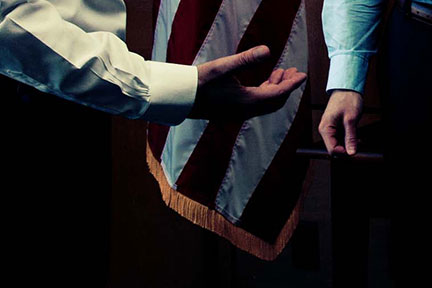
**** This decision was overruled by the Michigan Supreme Court in Pace v Edel-Harrison, 499 Mich 1; 878 NW2d 784 (2016). Read about it here. **** Last week when reviewing a summary disposition appeal the Michigan Court of Appeals reiterated that reporting a “suspected violation of a law” is protected activity under the Whistle-Blowers' Protection Act (WPA). Pace v Edel-Harrelson, No. 319223, 2015 WL 773423 (Mich Ct App February 24, 2014); see also Debano-Griffin v Lake Co, 486 Mich 938; 782 NW2d 502 (2010).
In Pace v Edel-Harrelson an employee alleged she was unlawfully terminated by her employer in violation of both the WPA and common-law public policy. The employee worked at an "organization devoted to helping domestic violence victims and the homeless." Prior to her termination, she reported concerns of financial mismanagement; namely, that a caseworker improperly used state grant funds to purchase a stove for her daughter. The employee further alleged that these reports were protected activity and caused her termination.
The defendants in Pace, which included the executive director, the caseworker, and the organization, raised various allegations in response to the employee's WPA claim, but were ultimately unsuccessful. For example, defendants' argued that the WPA only applies to actual violations of law and it was not proven that the caseworker actually used state grant funds for the stove. The Court, however, disagreed with this analysis of the WPA:
"[W]e reject defendant's (sic) suggestion that, where an employee has a good faith and reasonable belief that a violation of the law has either already occurred or is being actively planned, the report of that belief is insufficient to trigger the protections of the WPA. Defendants' argument suggests that no matter how serious a violation is being planned, an employee who learns of the plan must (a) report the planned violation without the benefit of the protections the Legislature provided in the WPA; (b) remain silent until the violation occurs, or; (c) undertake her own investigation to determine whether and when the planned violation has been completed. The first two options are inconsistent with the language of the WPA and the third option would be foolish, if not dangerous and potentially unlawful. Requiring that a reporter wait until she is certain that the violation is complete is also inconsistent with the intent of the WPA, i.e., the protection of the public ... The WPA affects this goal by protecting “employee efforts to report violations or suspected violations of the law.”"
Based on this analysis and the evidence in the record the Court concluded that the employee performed protected reporting activities under the WPA. The Court also concluded that the employee met the "causation" element of her WPA claim because there was evidence (e.g., the employee's testimony) that contradicted defendants' purported reasons for firing her (allegations that the employee harassed and intimidated another employee). As a result, the Court reversed the trial court’s grant of summary disposition on the employee’s WPA claim. The Court did not review the employee’s common-law public-policy claim because the WPA preempted the employee's public-policy claims in this case.
Importantly, the Court noted in Pace v Edel-Harrelson that because the case concerned a suspected violation of an actual law the Court did not decide the issue of whether the WPA extends to reports of suspected violations of suspected laws. Therefore, it appears that issue is an open question under the WPA and could be brought in a later case. **** This decision was overruled by the Michigan Supreme Court in Pace v Edel-Harrison, 499 Mich 1; 878 NW2d 784 (2016). Read about it here. ****
EMPLOYMENT LAW WHISTLEBLOWER CASES
